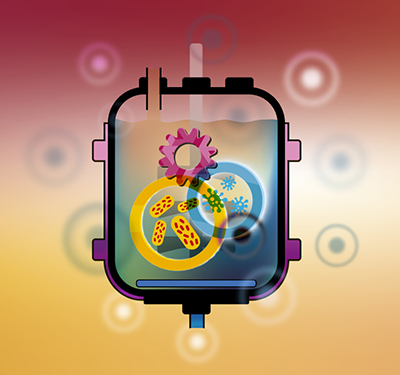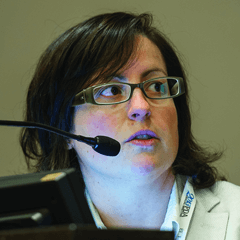2022 PDA BioManufacturing Conference Lands in Amsterdam
 On behalf of PDA Europe and the program planning committee, we want to invite you to the 2022 PDA Biomanufacturing Conference: Biopharmaceutical Solutions to Prepare for Healthcare Challenges.
On behalf of PDA Europe and the program planning committee, we want to invite you to the 2022 PDA Biomanufacturing Conference: Biopharmaceutical Solutions to Prepare for Healthcare Challenges.
We have been hard at work organizing the fourth iteration of this conference, which once again will join forces with the with the PDA Lyophilization Conference to offer a full experience including emerging trends in biomanufacturing and regulatory focus areas. We will come together as a three-track conference face-to-face in Amsterdam / The Netherlands, on 20-21 September 2022.
Over the last years, we have seen a tremendous acceleration in all aspects of biopharmaceutical development. The Covid health emergency revealed many opportunities for exploring new technologies, development approaches, CMC strategies and regulatory frameworks to support rapid access to vaccines and biotherapeutics as well as sustainable lifecycle management. We will share the lessons learned from these experiences at the PDA Biomanufacturing Conference and explore how they could be leveraged to address future situations and adapted under more routine circumstances.
During this conference, we will explore key industry and regulatory positions related to such topics as the required characterization of both product’s physicochemical properties, including its stability, and the manufacturing process. In case of any changes made throughout a product’s lifecycle, comparability strategies and technical transfers are of extreme importance to demonstrate with state-of-the-art methods that no difference to the quality of the product is observed that could adversely impact the safety and efficacy of a product. In addition to the development and validation of the manufacturing process, recent development and challenges have been associated to setting specifications on an appropriate shelf life due to the accelerated scenarios to provide a rapid response to unmet medical needs. Our expert speakers will provide examples on how to address these challenges.
Biomanufacturing facilities and manufacturing technologies also continue to advance, due to a strong increase in the variety and complexity of compounds that are being developed. Novel approaches and methodologies, as well as new trends in equipment and quality control systems are required to support formulation development or manufacturing activities and ensure accelerated delivery to patients. Also, digitalization, including but not limited to process and product modeling, plays a key role in biomanufacturing. Concepts such as Industry 4.0 and Factory or Lab of the Future are being discussed and implemented more and more. Case studies and regulatory perspectives will be presented that demonstrate how we can embrace and integrate innovations into our research and supply processes to become more efficient, reduce overall time and costs, as well as increase quality to benefit the patient.
Changing Technologies
As part of biomanufacturing technology changes, recent years have seen the drastic increase in usage of single-use systems due to their flexibility and their ability to answer bioprocessing peak demand. In a dedicated session, you will be able to learn about new challenges and success stories when using single-use systems for early development clinical material, as well as for cell and gene therapy, and methods being developed to mitigate supply risk.
Climate change has become more and more a major concern over the planet that also affects the pharmaceutical industry. The last Intergovernmental Panel on Climate Change report, Climate Change 2022: Impacts, Adaptation and Vulnerability, indicated that “Taking action now can secure our future.” The industry as a whole can play a key role in moving towards carbon-neutral and zero-emissions situations in a timely manner, and the pharmaceutical biomanufacturing industry must develop sustainable solutions for manufacturing activities. At the 2022 PDA BioManufacturing Conference, we will explore how to address this objective and what challenges we must overcome.
In addition to vaccine case studies in the main conference, we are pleased to host a session again in collaboration with the Vaccine Interest Group (VIG). This year, the main focus of this dedicated forum will be on vaccines lifecycle management. Licensed vaccine products are a varied product class that includes diverse types of molecular entities, and in many cases, contain multiple antigens in varying combinations. These characteristics require complicated post-approval plans to support product changes for multiple licenses in multiple jurisdictions while avoiding risks to product availability. This dedicated session will provide an overview of current concepts in vaccine lifecycle management, including a regulatory perspective from the U.S. FDA. The application of lifecycle management principles as they were applied during the COVID-19 pandemic and the opportunities for more efficient lifecycle management described in ICH Q12 will also be discussed.
Since 2019, the biomanufacturing conference has been organized to discuss new technical and regulatory developments in the field. We are pleased to have experts from regulatory agencies, industry and academia to discuss these developments, offering an excellent opportunity to gain experience in biomanufacturing, reflect on opportunities, and explore challenges. For more information on the 2022 PDA BioManufacturing Conference and its detailed agenda, visit the event page. We look forward to seeing you at this exciting and interactive meeting!



 Cristiana Campa, PhD, is currently a Technical R&D Advisor and Fellow at GSK Vaccines, with involvement in CMC development portfolio support and scientific advocacy, focusing on CMC strategies and innovation. She has more than 20 years of experience in biologics and related analytical and development approaches gained in different universities and companies. She joined Novartis Vaccines in 2006, focusing on the development validation, and transfer of analytical methods for the release and characterization of several vaccine products, first as a senior manager and then as Head of Analytical Development, Italy. Since 2012, Cristiana has worked on quality by design (QbD) principles implementation for vaccines. Since the acquisition of Novartis Vaccines by GSK in 2015, she has been the Head of QbD Integration and, until June 2018, the Head of Science and Development Practices in Technical R&D, covering QbD implementation, knowledge management, and development roadmaps. She co-edited PDA’s successful book, Quality by Design — An Indispensable Approach to Accelerate Biopharmaceutical Product Development.
Cristiana Campa, PhD, is currently a Technical R&D Advisor and Fellow at GSK Vaccines, with involvement in CMC development portfolio support and scientific advocacy, focusing on CMC strategies and innovation. She has more than 20 years of experience in biologics and related analytical and development approaches gained in different universities and companies. She joined Novartis Vaccines in 2006, focusing on the development validation, and transfer of analytical methods for the release and characterization of several vaccine products, first as a senior manager and then as Head of Analytical Development, Italy. Since 2012, Cristiana has worked on quality by design (QbD) principles implementation for vaccines. Since the acquisition of Novartis Vaccines by GSK in 2015, she has been the Head of QbD Integration and, until June 2018, the Head of Science and Development Practices in Technical R&D, covering QbD implementation, knowledge management, and development roadmaps. She co-edited PDA’s successful book, Quality by Design — An Indispensable Approach to Accelerate Biopharmaceutical Product Development. Raf De Dier, PhD, is Associate Director Advanced Technology at The Janssen Pharmaceutical Companies of Johnson & Johnson. In his current position in the Biologics Clinical Supply organization, he drives the proof-of-concept evaluation and implementation of new scientific initiatives across the biologics manufacturing sites of Janssen R&D. He joined Janssen R&D in 2016, where he was responsible for the process development and tech transfer support for liquid and lyophilized drug products in the parenteral fill-finish pilot plant. As part of the Manufacturing Science & Technology group, he has also led various process improvement projects with an emphasis on lyophilization. He holds a master’s degree in Chemical Engineering and obtained his PhD at the University of Leuven in Belgium and ETH Zürich in Switzerland.
Raf De Dier, PhD, is Associate Director Advanced Technology at The Janssen Pharmaceutical Companies of Johnson & Johnson. In his current position in the Biologics Clinical Supply organization, he drives the proof-of-concept evaluation and implementation of new scientific initiatives across the biologics manufacturing sites of Janssen R&D. He joined Janssen R&D in 2016, where he was responsible for the process development and tech transfer support for liquid and lyophilized drug products in the parenteral fill-finish pilot plant. As part of the Manufacturing Science & Technology group, he has also led various process improvement projects with an emphasis on lyophilization. He holds a master’s degree in Chemical Engineering and obtained his PhD at the University of Leuven in Belgium and ETH Zürich in Switzerland.